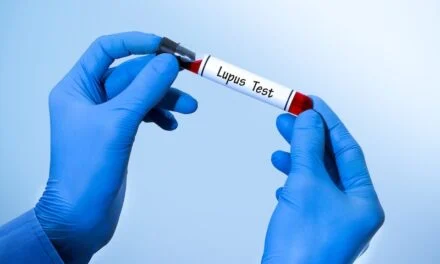Autoimmune diseases, such as rheumatoid arthritis, have been historically difficult to diagnose quickly and accurately. Thermo Fisher’s Phadia Laboratory Systems have ended this uncertainty by adding precision to the mix.
By Chris Wolski
Summary: Thermo Fisher’s Phadia Laboratory Systems enhance the precision and speed of diagnosing autoimmune diseases, such as rheumatoid arthritis, which have historically been challenging to diagnose accurately.
Takeaways:
- Complex Symptoms: Autoimmune diseases present ambiguous symptoms, complicating diagnosis and often leading to misdiagnosis.
- Specialist Shortages: A shortage of specialists and long wait times exacerbate diagnostic delays.
- Advanced Testing Solutions: Phadia Laboratory Systems utilize advanced technologies like fluorescent enzyme immunoassay (FEIA) to improve diagnostic accuracy and efficiency.
Autoimmune diseases are among the most prevalent illness affecting Americans with an estimated 50 million people affected by one of the 80 or so recognized conditions1.
Some of these diseases are well-known and easily diagnosed, such as diabetes. Others like rheumatoid arthritis and lupus pose diagnostic difficulties, often resulting in misdiagnosis, making the journey to treatment a long and arduous one.
In a recent interview with CLP, Jessica Murphy, marketing manager, systems and reagents for Thermo Fisher, outlined why diagnosis of autoimmune diseases is so difficult and how the company’s Phadia Laboratory Systems are adding a level of precision that is making diagnosis much faster and accurate.
Answers have been edited for length and clarity.
CLP: What makes diagnosing autoimmune diseases, such as rheumatoid arthritis, so difficult?

Jessica Murphy: Diagnosing autoimmune diseases is complex due to several interconnected factors. A major challenge is the ambiguous symptoms these conditions present. Patients often report symptoms that could be signs of many other illnesses, making it difficult to pinpoint the correct diagnosis quickly and effectively. A recent study revealed that 76% of patients reported at least one misdiagnosis before their symptoms were eventually linked to a systemic autoimmune rheumatic disease.
Patients will typically consult with a primary care physician first, who may not have the specialized knowledge or resources to conduct an in-depth investigation the way that a specialist would. The specific tests needed to diagnose autoimmune diseases accurately may not be ordered the first time and a primary care provider might be less comfortable with or less familiar with the intricacies of ordering specialized tests, which adds another layer of complexity to the diagnostic process.
The introduction of new testing methods and technologies can also add to the confusion. As the field of autoimmune disease diagnosis evolves, staying updated with the latest testing protocols and ensuring they are accurately integrated into clinical practice presents an ongoing challenge.
Additionally, there is often a lack of clear and standardized diagnostic criteria for autoimmune diseases, which complicates the process further. The measurement of autoantibodies—a crucial component in diagnosing these conditions—varies significantly across different manufacturers. Variations in units of measurement, cut-off values, and antigen sources contribute to inconsistent results and can lead to confusion in interpretation.
CLP: Is another difficulty due to the sheer number of patients waiting to be seen by a rheumatologist/specialist?
Murphy: Yes, the high volume of patients waiting for appointments with rheumatologists or other specialists significantly contributes to the difficulty in diagnosing autoimmune diseases. The sheer number of patients creates a substantial backlog, which can lead to long wait times for consultations and diagnostic evaluations. This delay in seeing a specialist not only prolongs the diagnostic process but can also exacerbate the progression of the disease, making timely and effective treatment more challenging.
Compounding this issue is the decline in the number of practicing rheumatologists, which intensifies the strain on the health care system. As the demand for specialized care grows, the shortage of specialists results in even longer waits, ultimately worsening patient outcomes as they await crucial evaluation and intervention.
CLP: Are there any “gold standard” tests for rheumatoid arthritis and other autoimmune diseases? What are their limitations?
Murphy: The antinuclear antibody immunofluorescence assay (ANA IFA) using Hep-2 cells is widely regarded as the gold standard for testing autoimmune diseases. This test is crucial for detecting antinuclear antibodies, which are often present in various autoimmune conditions. The ANA IFA is valued for its high sensitivity, meaning it is effective at identifying a wide range of cases where autoimmune activity might be present.
However, despite its importance, the ANA IFA has notable limitations. Its high sensitivity comes with the trade-off of low specificity. This means that while the test is good at detecting the presence of antinuclear antibodies, it is not always precise in identifying if an autoimmune disease is present. As a result, false-positive results can be observed in healthy individuals or non-autoimmune disease patients due to cross-reactivity or specific binding. These false positives can complicate the diagnostic process, leading to further testing and uncertainty
To address these limitations, high-quality solid-phase immunoassays, such as those in the automated Phadia EliA Autoimmune Diagnostics portfolio, can provide enhanced specificity. Combining the ANA IFA with solid-phase immunoassays can offer a more comprehensive approach, improving diagnostic accuracy and patient care.
CLP: Thermo Fisher has developed autoimmune and allergy testing that can be used through its Phadia Laboratory Systems. How did the company solve some of the diagnostic difficulties you outlined earlier?
Murphy: The Phadia Laboratory Systems utilizes fluorescent enzyme immunoassay (FEIA), a sophisticated ELISA-based method that uses fluorescent labels to detect specific antibodies with high accuracy. It features discrete well testing and random-access technology, allowing samples to be tested at any time rather than in batches. This flexibility is crucial for managing the diverse and overlapping symptoms of autoimmune diseases. You can see why a major point in autoimmune diagnostics is to have a specific and reproducible detection of autoantibodies. We use the baculovirus for many of our assays because it produces the antigens almost the same as they are in human eukaryotic cells.
Additionally, Phadia’s approach to reagent management reduces waste by using shared, non-lot specific reagents that can be used interchangeably for various tests. This not only improves efficiency but also lowers costs and supports high-quality, reproducible results. Overall, the Phadia Laboratory Systems enhances diagnostic accuracy and operational efficiency, addressing key challenges in autoimmune and allergy testing.
For further Listening: The State of Allergy Testing
CLP: One of the other difficulties with autoimmune testing, such as for rheumatoid arthritis, is that it can be expensive and inefficient—how does the Phadia Laboratory Systems combat these challenges, and make this test profitable for labs?
Murphy: The Phadia Laboratory Systems tackles these challenges through several key strategies. Thermo Fisher’s focus on allergy and autoimmune testing ensures that solutions are specifically tailored to these areas, enhancing both the precision and relevance of the tests. The company also gathers real-world data to identify and address pain points in the testing process, leading to continuous improvements and more effective solutions.
In addition, the Phadia laboratory Systems emphasizes education and support for healthcare providers. By offering training and resources, it helps improve lab efficiency and enhances the overall experience for both patients and providers. The system’s consolidation approach further contributes to cost savings and efficiency. By reducing the need for multiple contracts and minimizing reagent use, Phadia streamlines the testing process, which ultimately lowers operational costs and increases profitability for labs.
CLP: Is the Phadia Laboratory Systems available now? How many autoimmune conditions can it test, and can it be used for allergy testing as well?
Murphy: Yes, the Phadia Laboratory Systems are currently available and offer scalable, automated solutions that can be adapted to labs of any size, from small clinics to large diagnostic centers. In the U.S., the Phadia Laboratory Systems is capable of testing for seven different autoimmune diseases, covering a broad spectrum of conditions to assist in comprehensive diagnostic evaluations. Additionally, the system is equipped to perform allergy testing, making it a versatile tool for both autoimmune and allergy diagnostics. This dual capability allows laboratories to streamline their testing processes and manage a wider range of diagnostic needs with a single, integrated platform.
Chris Wolski is chief editor of CLP.
Reference
- Autoimmune Diseases. National Institute of Environmental Health Sciences. July 10, 2024. https://www.niehs.nih.gov/health/topics/conditions/autoimmune





